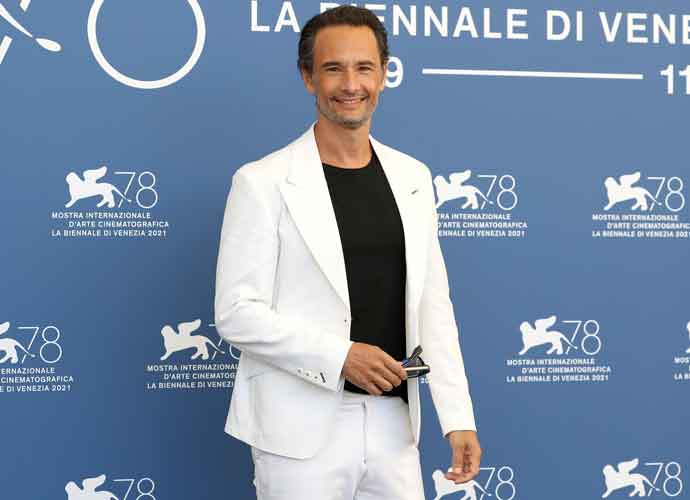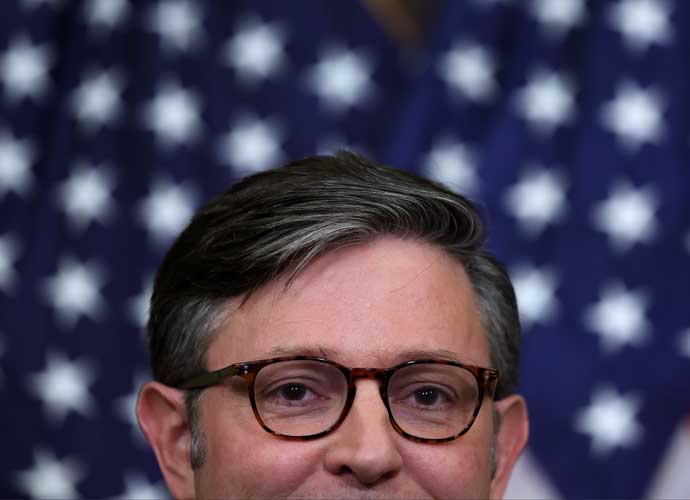VIDEO EXCLUSIVE: Rodrigo Santoro Says He Didn’t Want To Be ‘Stereotypical’ Bad Guy in ‘7 Prisoners’
Rodrigo Santoro revealed how he refused to play the “stereotypical” bad guy in the new Netflix movie 7 Prisoners in his new uInterview.
“The film discusses what we call the modern-day enslavement and human trafficking,” Santoro said, speaking with uInterview founder Erik Meers. “The character I play is called Luca, he is the manager of a junkyard that — he basically lives off the exploitation of his workers.”
“I do not like to call him a villain, I call, I would say the antagonist of the story,” the actor continued. “He’s a man who is very aware of the terrible things that he does and he chose to live this life because of the life he had before. So this is also a survivor, he’s also a product of an extremely unequal and exclusionary system, which doesn’t make him a victim. This is a character that does not have redemption. But the whole idea here was to try to portray, you know, not a stereotypical villain or antagonist, but to humanize him so you get to understand, you know, where he’s coming from.”
“I started from like ‘Where does Luca come from?’ like ‘What is his backstory?'” Santoro said. “And, you know, when you talk about social inequality it’s not just income. It affects the way of living. It, you know, we all have the right to live and dignity. So, we’re talking about schooling, health, employment, transportation and all the basic things that this guy didn’t have growing up.”
Santoro said that the toughest scene to film was when Luca reveals his backstory to Mateus, played by Christian Malheiros.
“I worked on that scene, I kid you not, worked on the text, on the lines and I had help with that. My manager helped me, my wife helped me. I wanted to debate and to discuss and Alex our director was open to it. Like ‘What is the most realistic, human way?’ And not over the top and not trying to find a redemption for the character. It was such a thin line to find the right way to do that scene. And it was a lot of work.”
“For me, growing up in a middle class, regular family in Brazil, I really wanted to make sure that I got closer to that reality,” he explained, “and talked to people, and researched, and deeply, to at least suspend any kind of judgment and comprehend, get closer to that reality to be able to respectfully, to talk about this.”
“And I was invested in trying to find every moment possible to humanize him,” he said. “To find a way to — you were not going to like him and you shouldn’t, you might judge him, I just wanted you to understand.”
“It’s very easy to say villain, hero,” Santoro said, pointing his finger at two imaginary characters. “Now, when we take a closer look and understand, you know, that these are complex characters, especially because it was based in reality, that is, to me, was mandatory. We needed to take a closer look and really try to portray the story and these characters the most realistic and human three-dimensional way possible.”
The story is based on something the film’s director Alexandre Morato saw on TV.
“[Morato] was working interviewing people that were in that situation before,” the actor said. “And it started with that and then a big research, very long, I think it took him two years to, you know, put this all together.”
“What I did was in our first meeting, which was five-hour-long, we talked about his research and how we could collaborate and really try to find the best way, the most realistic and human way to tell this story. And then I went online and researched a lot, which was very, very painful because as more I researched, more shocked I was to realize how real — and there are a couple of documentaries, there are images, there are videos. If you look, and it’s not fake news, it’s real stuff, it’s very shocking, very moving. So that was the base of it, that big research.”
7 Prisoners is streaming on Netflix now. Check out the trailer below.
RELATED ARTICLES
Get the most-revealing celebrity conversations with the uInterview podcast!









Leave a comment